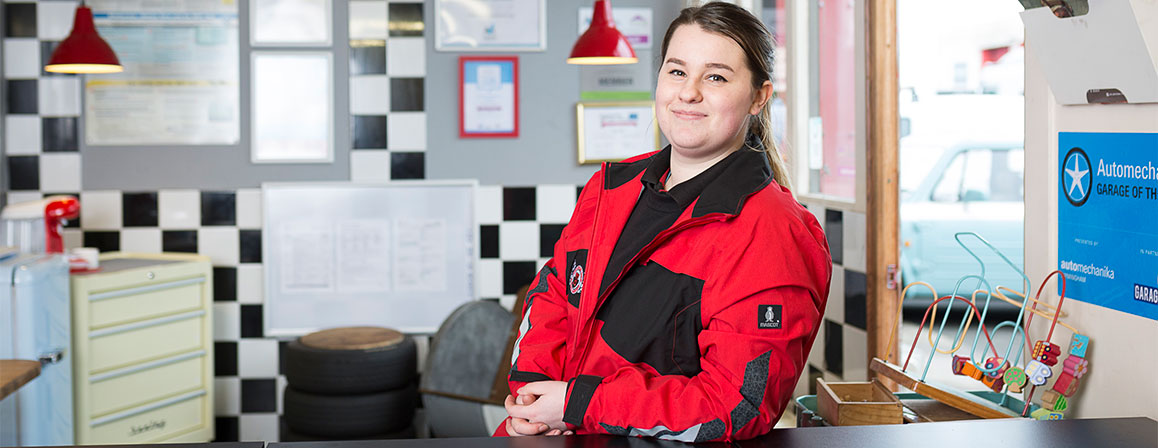This rising star explains how she fought the naysayers to do the job she wanted

What inspired you to get into the motor industry?
I’ve always had an interest in cars and how they work, with a particular fascination for American muscle cars (I adore the 1967 Shelby GT500).
But I didn’t originally imagine becoming a technician or working in a garage. My plan was to join the Army or work in the public sector. I used to be a member of Army Cadets, but certain health issues held me back and prevented that from becoming a reality.
Before my mother became increasingly ill, we would regularly be in the driveway working on her car or stripping, rebuilding and painting her old Suzuki Roadie scooter. She proved to me from a young age that it’s not a man’s world and inspired me to ignore stereotypes and just do what made me happy.
Once you had made the decision that the motor industry was for you, how did you make it happen?
I started my career unconventionally. Back in high school, I was meant to start a week of work experience at the local police station, but it fell through at the last minute. I went with my mother to Avia Speed Shop in Bridgend for her car’s MOT and had a chat with Hayley Pells, the garage’s owner. She was very kind and gave me work to do for the week so that I could complete my work experience.
While in school, I became a young carer for my mother. This pushed me to become stronger and created a craving for independence, Hayley helped there too, allowing me to continue working at Avia following the week’s work experience. This then allowed me to start a Light Vehicle Maintenance and Repair course at college, which laid the foundation for my apprenticeship.
How challenging was it?
Joining the industry was tough as I wasn’t welcomed with open arms by all. While I was in school and deciding on my GCSE options, I voiced my plan to pick engineering to a teacher but was strongly advised against it because of my gender. I was told I could do something “smarter”. This didn’t sit well with me, and I was determined to prove my teachers wrong.
Some people still had reservations, including whether I was physically strong enough. It isn’t always about physical strength but more about mindset and using the tools you’re given to work smarter, rather than harder. I always felt like I had something to prove, but that’s not a bad thing because it has made me push myself.
What support and training have you received?
I’ve completed my IMI Level 2 and Level 3 Diploma in Light Vehicle Maintenance and Repair, plus the ILM Level 2 in Leadership and Management and more recently a Level 3 IMI EV and Hybrid course, along with a host of CPD courses and webinars to develop my skills in both the workshop and the office.
I have received a lot of support over the years from the team at Avia, as for a while I was unsure if I would want to be in a workshop forever. I was encouraged to learn skills in accountancy, business management and networking so that I could take them with me if and when I decided to leave Avia.
How has your career developed so far?
In ways I wasn’t expecting! I’m lucky enough to be able to learn and develop, and I’m finding it extremely exciting. I specialise in topics surrounding mental health for junior technicians, and it’s something I hope to develop further. It’s often neglected because people don’t always realise they’re struggling.
What advice would you give to someone thinking about getting into the industry?
Be prepared to put in the work – you’ll only get out what you put in. You must be open to learning, as technology is changing every day. It’s important to keep up with it or, at the very least, be aware of it.
To anyone who’s thinking about joining the industry who, like me, was told not to, I’d say just give it a go. Only you can decide whether it’s the right fit for you, and if you are capable of doing it you may be surprised that it’s actually a very friendly and inviting industry



